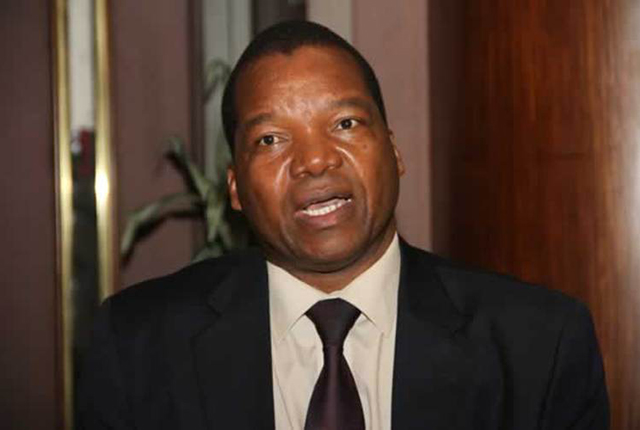Bata ups workforce

Bata Shoe Company managing director Mr Ehsan Zaman explains to the Midlands Minister of State for Provincial Affairs Cde Owen Ncube (wearing hat) the shoe production process at the factory in Gweru yesterday
Sukoluhle Ndlovu Midlands Correspondent
THE country’s biggest shoe manufacturer, Bata Shoe Company, says it has increased its workforce by 800 following its reintroduction of Sandak and Pata Pata brands onto the market. The production of the two popular brands was halted in 2008 due to some challenges.
Speaking during the tour of the company’s Gweru factory by the Minister of State for Midlands Provincial Affairs Cde Owen Ncube yesterday, the company’s managing director Mr Ehsan Zaman said their workforce had increased from 400 to 1 200.
“I am pleased to let you know that our workforce has increased from 400 to 1 200. This is because we reintroduced Sandak and Pata Pata brands, whose production had been halted in 2008,” he said.
Turning to the Pata Pata brand, Mr Zaman said to date his company had produced 1, 5 million pairs for domestic and regional markets.
“We are exporting Pata Pata to the neighbouring countries like Malawi, Zambia, Botswana and plans are underway to take the product to Kenya and South Africa,” he said.
Mr Zaman said his company was finalising the production of gumboots for domestic and regional markets.
“Very soon the company will for the first time start producing gumboots as we have secured the required machinery. The project is expected to begin at end of April or beginning of May. That means the workforce will increase. I can assure you that next time you come here, the gumboot machine will be running. Plans to manufacture safety shoes are also underway,” he said.
Mr Zaman appealed to Government to avail foreign currency, saying its shortage was hampering production.
“For now our, biggest challenge is the shortage of foreign currency and that is impacting negatively on our business. We therefore appeal for foreign currency allocation from the Government so that we are able to buy raw materials,” he said.








Comments